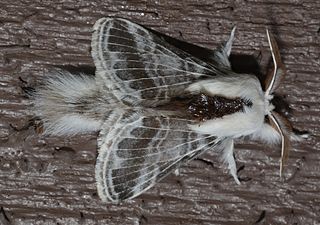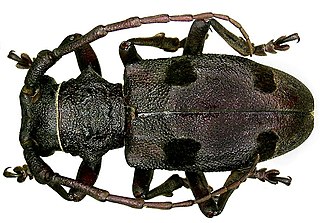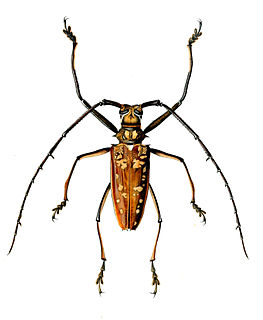
In Germanic religion and Germanic mythology, a seeress is a woman said to have the ability to foretell future occurrences. Strongly associated with wands, seeresses at times held an authoritative role in Germanic society and mentions of Germanic seeresses occur as early as the Roman era, where, for example, they at times played a role in rebellion under Roman rule and acted as envoys to Rome. After the Roman Era, mention of seeresses occur in records among the North Germanic people, where they form a reoccurring motif in, for example, Norse mythology.
Veleda was seeress of the Bructeri, a Germanic people who achieved some prominence during the Batavian rebellion of AD 69–70, headed by the Romanized Batavian chieftain Gaius Julius Civilis, when she correctly predicted the initial successes of the rebels against Roman legions.
Velleda is a main-belt asteroid. It is probably a rather typical, albeit sizable, S-type asteroid. Named for Veleda, a priestess and prophet of the Germanic tribe of the Bructeri. It was discovered by Paul Henry on November 5, 1872, in Paris, France. It was his first credited discovery. He and his brother Prosper Henry discovered a total of 14 asteroids.

The Lasiocampidae are a family of moths also known as eggars, snout moths, or lappet moths. Over 2,000 species occur worldwide, and probably not all have been named or studied.

The Iron Hand of Mars is a 1992 historical mystery crime novel by Lindsey Davis and the fourth book of the Marcus Didius Falco Mysteries series. Set in Rome and Germania during AD 71, the novel stars Marcus Didius Falco, informer and imperial agent. The iron in the title refers to the standard, shaped like a giant hand made of iron, which Falco is required to deliver to the imperial legions in Germany.

Camille Erlanger was a Parisian-born French opera composer. He studied at the Paris Conservatory under Léo Delibes (composition), Georges Mathias (piano), as well as Émile Durand and Antoine Taubon (harmony). In 1888 he won the Prix de Rome for his cantata Velléda. His most famous opera, Le Juif polonais, was produced at the Opéra-Comique in 1900.
Johann Friedrich Eduard Sobolewski was a Polish-American violinist, composer, and conductor.

Pinheiro Machado is a municipality in the state of Rio Grande do Sul, Brazil.

The Dragon Lord is a historical fantasy or sword and sorcery novel by American writer David Drake. First published in 1979 and revised in 1982, the novel is set in sixth century Arthurian Britain.

Velleda Cesari was an Italian fencer. She competed in the individual foil event at the 1948, 1952 and 1956 Olympics with the best achievement of seventh place in 1948. In 1960 she won a bronze medal in the team foil event.

Tolype velleda, the large tolype moth or velleda lappet moth, is a species of moth of the family Lasiocampidae. It was first described by Caspar Stoll in 1791. The species is found from Nova Scotia to central Florida, west to Texas and north to Ontario.
Cesari is an Italian surname. Notable people with the surname include:
Ganna was a seeress among the Semnones, a Germanic people. She was the successor of Veleda at the end of the 1st century. She was politically active and acted as a diplomat and representative of her tribe in negotiations with Roman Emperor Domitian.
Masyus, king of the Semnones, and Ganna, a virgin who was priestess in Germany, having succeeded Veleda, came to Domitian and after being honoured by him returned home.

Phrissomini is a tribe of longhorn beetles of the subfamily Lamiinae. It was described by Thomson in 1860.

Velleda is a genus of longhorn beetles of the subfamily Lamiinae, containing the following species:

Batocera victoriana is a species of beetle in the family Cerambycidae. It was described by Thomson in 1856. It is known from Borneo, India, Laos, the Philippines, Malaysia, Vietnam, and Sumatra. It contains the varietas Batocera victoriana var. velleda.
Velleda bassamensis is a species of beetle in the family Cerambycidae. It was described by Stephan von Breuning in 1936. It is known from the Ivory Coast and Ghana.
Velleda callizona is a species of beetle in the family Cerambycidae. It was described by Louis Alexandre Auguste Chevrolat in 1855. It is known from Nigeria.

Velleda murina is a species of beetle in the family Cerambycidae. It was described by James Thomson in 1858. It is known from the Republic of the Congo, Equatorial Guinea, and Gabon.

Maria Veleda, the pseudonym widely used by Maria Carolina Frederico Crispin (1871–1955), was a Portuguese educator, journalist and activist. One of the most effective early feminists in Portugal, she fought for the rights of women factory workers and encouraged the education of women, launching the Portuguese Group of Feminist Studies in 1907. She was a co-founder of the Republican League of Portuguese Women in 1908, later becoming President of the Board, while in 1915 she promoted the involvement of women in politics, founding the Female Association of Democratic Propaganda.











